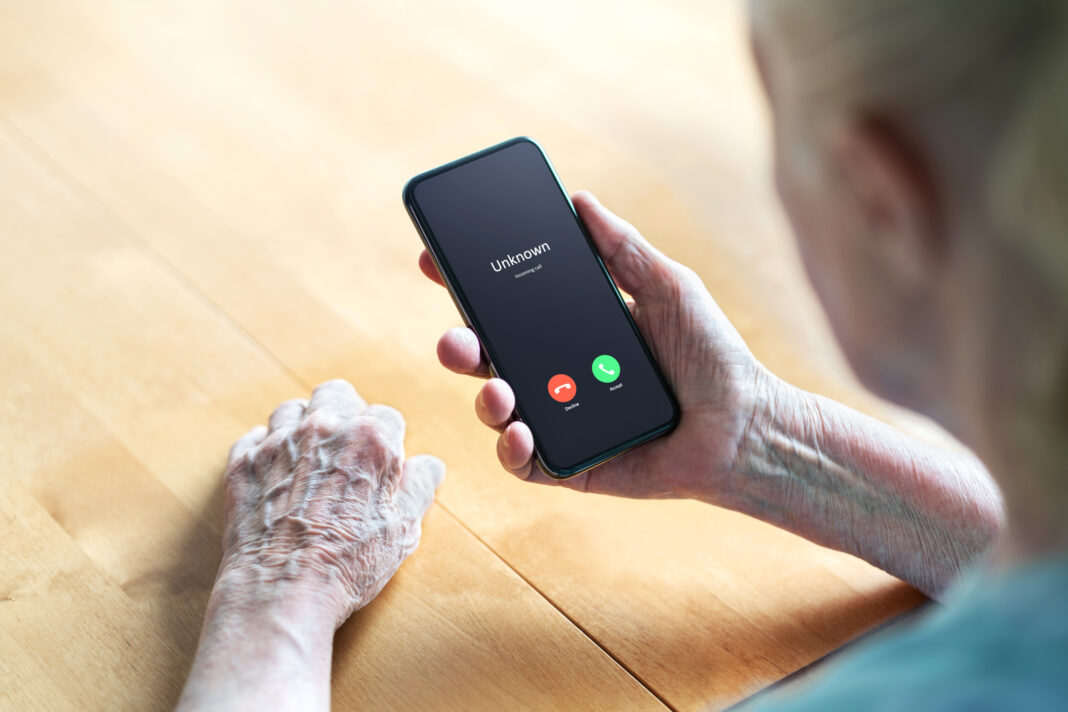Romance scams targeting older people online for financial gain are on the rise. While anyone can fall victim to a romance scam, they disproportionately affect older populations; particularly, seniors who are using dating apps for the first time in the hope of finding love in later life. Here’s what you need to know.
How Do Romance Scams Work?
While romance scams are not all alike, there is a basic scammer playbook for convincing a target to send money.
It starts with the creation of a fake profile on a dating app. Tinder, Bumble, Ashley Madison, Grindr, Match and Hing are are just a few of the platforms used for such schemes. The scammer will decorate their faux profile with photos that form a certain archetype: attractive, wealthy-looking, lavish lifestyle, living abroad. In other cases, scammers will pose as military personnel, police officers, and doctors, claiming to reside overseas due to their career.
The scammer will then match with or directly message elderly users, which is often an unexpected and pleasant surprise for the target, excited by the potential of a romantic prospect. If they respond, the scammer will then launch the swindle by stirring up romantic feelings with their target. They will seem like a kind, attentive, and genuinely interested suitor. Eventually, the scammer will escalate to more intimate exchanges, and in short order may profess their love and desire for a long-term commitment with the target. The development of this exchange can span from several weeks to months and even years.
Once the scammer senses that their victim’s love and devotion is reciprocal, they start asking for money for various reasons. They may start asking for cash for things like home or automobile repairs, or gift cards for family members. In some cases, the scammer will stage a specific incident, soliciting funds for a fake medical emergency or travel dilemma.
In some instances, the scammer may pocket the first funds they receive and run, deleting their profile, and abandoning their victim. In other cases, the relationship can be more long term. In one infamous scenario, a scammer defrauded an 87-year-old man, bilking him out of $2.8 million over a four-year time period.
For some, it may be difficult to relate to how a victim can empty their pockets for love. But the intensity of the engagement can make victim’s feel confused, excited, and euphoric all at once, manipulating them into believing they’ve found genuine companionship that’s worth their financial support.
Why Do Scammers Target the Elderly?
Seniors are a common target, as they tend to have more cash savings, be more financially stable, and have a higher tendency to be trusting. Recently widowed or divorced seniors are also key targets, because they tend to be lonely, vulnerable, and have a sudden influx of cash from life insurance claims.
Unfortunately, seniors also tend to be less informed about online scams in general. To protect yourself or your elderly loved ones, here’s a list of red flags that can alert one of a romance-scam:
- A potential suitor resides outside of the country in which you live.
- The suitor gets personal quickly, but makes incessant excuses when it comes to meeting in person or joining a video call.
- They ask you to move to another app or website to speak privately.
- They claim to be a native English speaker, but their spelling, grammar, or accent tell you otherwise (many romance scams originate in West Africa, predominantly Nigeria and Ghana).
When online dating, it’s always important to do some homework and search whether other people have reported such scammers. For example, you can type in “doctor abroad scammer” and see if the results relate to your scenario. You can also search the person’s photo on Google Image: If it appears under several different names, they are likely a scammer.
Lastly, in any online engagement, romantic or not, remember to refrain from discussing your banking information, Social Security number, and never share copies of your ID or passport, or any other sensitive data.










